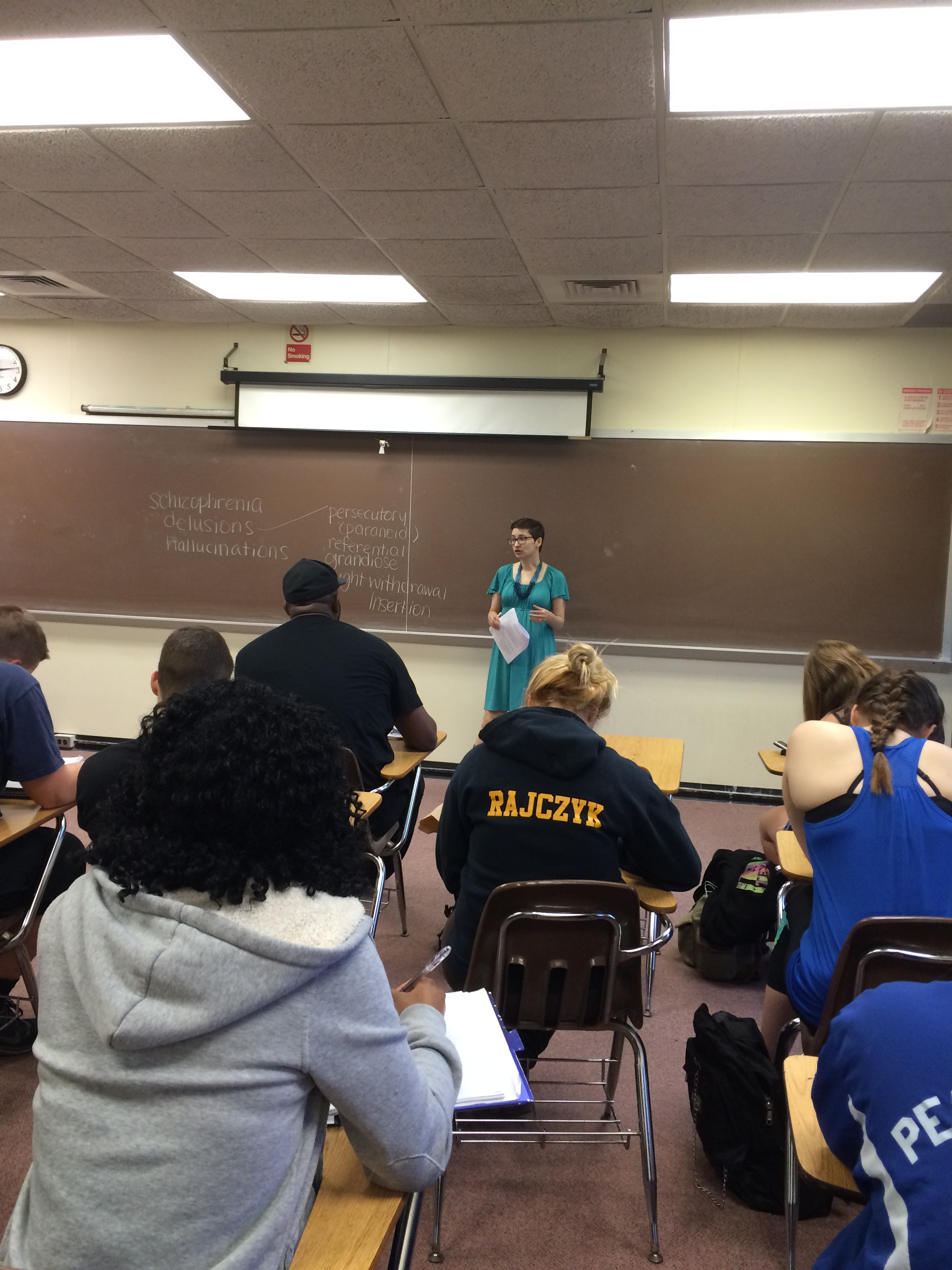 School name: Rockland Community College
School name: Rockland Community College
Type of school: Community College
School locale: Small town in a somewhat rural area
Classes you teach: General Psychology, Developmental Psychology, Psychology of Childhood, Psychology of Adolescence, Human Sexuality
What’s the best advice about teaching you’ve ever received?
Don’t be friends with your students; instead, be friendly with them. I use some personal stories in order to make course material easier to learn and remember; however, maintaining a proper distance from students make grading and judgment calls much easier!
 Tell us about your favorite lecture topic or course to teach.
Tell us about your favorite lecture topic or course to teach.
I love to teach about gender, gender identity, how children acquire their gender expectations and gender roles, and how adolescents’ ideas about gender are reinforced in the media. These topics come up in my Developmental Psychology, Psychology of Childhood, or Psychology of Adolescence courses. I find that these topics usually garner a great deal of discussion and questions because students often have misunderstandings about what gender is, how gender differs from sex, and how both nature and nurture are HUGE influences on gender. One of the best parts of this lecture topic is the inclusion of the Bechdel Test. Alison Bechdel, a prominent American cartoonist, famously refuses to partake of any media that does not have at least two women who talk to each other about something other than a man. I ask my students if their favorite TV programs or movies pass this test. Students realize this is much harder than it sounds! We then have a fun discussion of how the media can teach children how women can be portrayed in an unhealthy way based on the results of this test.
Describe a favorite in-class activity or assignment.
I love to teach Diana Baumrind’s parenting styles. These parenting styles are applicable to most students’ lives in some way or fashion, and student usually have plenty of stories to tell about discipline, favoritism, or exceptions to parenting outcomes. My students are usually fascinated by the cultural exceptions to these styles, and they always want to know if their parents were “normal.” Then we get to our related activity, and this one is so much fun!
Several years ago, Tommy Jordan, a father of a teenaged girl, saw a post on her Facebook wall in which she complained about her household chores and her parents’ rules (with quite a bit of profanity). Jordan responded by posting a video on YouTube, and in this video, he point-by-point explained how she was incorrect in her complaints, and then he SHOT his daughter’s computer with his handgun six or seven times. After viewing the video, I ask my students to get into small groups and decide which parenting style he used. They love this activity and really become passionate about Jordan’s response.

What’s your workspace like?
My workspace is generally neat and clear of debris on the first day of the semester, but once school gets going, it gets cluttered. I tend to sort everything into piles. My office is decorated with my niece’s art, Doctor Who action figures and magnets, posters, and cat photos.
Three words that best describe your teaching style.
I’m always clear, fair, and enthusiastic.
What is something your students would be surprised to learn about you?
My students know that I’ve lived all over the U.S., and I love to travel. However, I’ve never really been out of the country.
What are you currently reading for pleasure?
I am reading Aziz Ansari’s and Eric Klinenberg’s Modern Romance. It’s a humorous take on what many people do to find love and romance today – online dating, dating apps, etc. There’s a lot of good research in the book and Ansari puts his unique comedic spin on the subject.
What tech tool could you not live without?
My favorite tech tools are Remind and Google Voice. I need to be able to stay in communication with my students, and they are resistant to using our school e-mail. Remind allows me to text my students without involving phone numbers. It is really easy to send the entire class or even all of my classes a text all at the same time. The Google Voice app allows my students to call my cell phone without giving them my “real” phone number. Google Voice provides me with another phone number that I give to my students, and if they call it, my phone will ring, and they can also leave messages. If I use the app, I can call them back without my students seeing my actual phone number on their phone screens.
